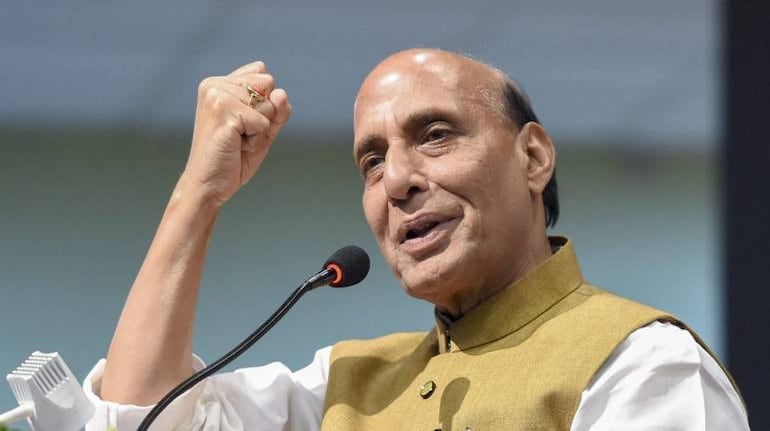



Defence Minister Rajnath Singh, who was the chief guest at the Firstpost Defence Summit in New Delhi, said that India has made significant changes to its defence sector and is now moving towards self-reliance. He stated that the defence industrial sector is making strides towards self-reliance and that the results are clear to see.
Furthermore, Singh emphasised that the government, led by Prime Minister Narendra Modi, firmly believes that Indian armed forces should not have to rely on military equipment made by foreign nations.
Singh announced that India's annual defence production is expected to reach Rs 3 lakh crore, with the export of military hardware set to reach Rs 50,000 crore by the financial year 2028-29.
Also Read | Four flight trials of 'ABHYAS' conducted successfully by DRDO
Singh also stated the Modi government's focus on achieving "long-term gains" in all sectors and developing India into a developed nation by 2047. He said that India has been successful in stepping out of its comfort zone and becoming one of the top 25 arms exporting nations in the world, indicating the government's focus on producing high-end systems like aero-engines and gas turbines locally.
“Earlier, India was known to be an arms importer. But today, under the leadership of the prime minister, we have come out of our comfort zone and found a place in the list of top-25 arms exporter nations,” Singh said.
Singh also added the Indian government has set aside 75 per cent of India’s defence purchase budget to invest in made-in-India weapons, to give a boost to domestic companies. Singh emphasised that the army is using indigenous resources, and the government is taking steps to export these arms and equipment.
Also Read | India approves acquisition of defence equipment worth Rs 84,560 cr
The Defence Minister, in his speech, highlighted the structural defence reforms and said that the Indian Army, Navy and Air Force have now established better coordination to tackle any challenge jointly. He emphasised that the Modi government is committed to integrating all three forces to achieve jointness and enhance coordination during times of crisis.
Acknowledging that the three services used to work independently in the past, Singh said that the government is now focused on breaking down these silos to ensure better coordination and preparedness. Although the integration process was challenging initially, the military is now well-equipped to deal with every challenge together.
Singh, on February 24, approved cash rewards for armed forces personnel who won medals at last year's Asian Games and Asian Para Games.
On February 23, Singh and his Dutch counterpart Kajsa Ollongren held talks to enhance industrial defence cooperation between the two nations. During the meeting, Singh suggested that Dutch original equipment manufacturers should consider integrating Indian vendors into their supply chains. The defence ministry stated that both ministers discussed opportunities to expand their bilateral defence cooperation, particularly in the maritime and industrial domains.
The Defence Acquisition Council (DAC), chaired by Singh, on February 16, approved capital acquisition proposals worth Rs 84,560 crore. The proposals are intended to enhance the capabilities of the Armed Forces and Indian Coast Guard. DAC has approved Acceptance of Necessity (AoN), with a special emphasis on procuring equipment from Indian vendors to promote self-reliance.
Discover the latest Business News, Sensex, and Nifty updates. Obtain Personal Finance insights, tax queries, and expert opinions on Moneycontrol or download the Moneycontrol App to stay updated!
Find the best of Al News in one place, specially curated for you every weekend.
Stay on top of the latest tech trends and biggest startup news.